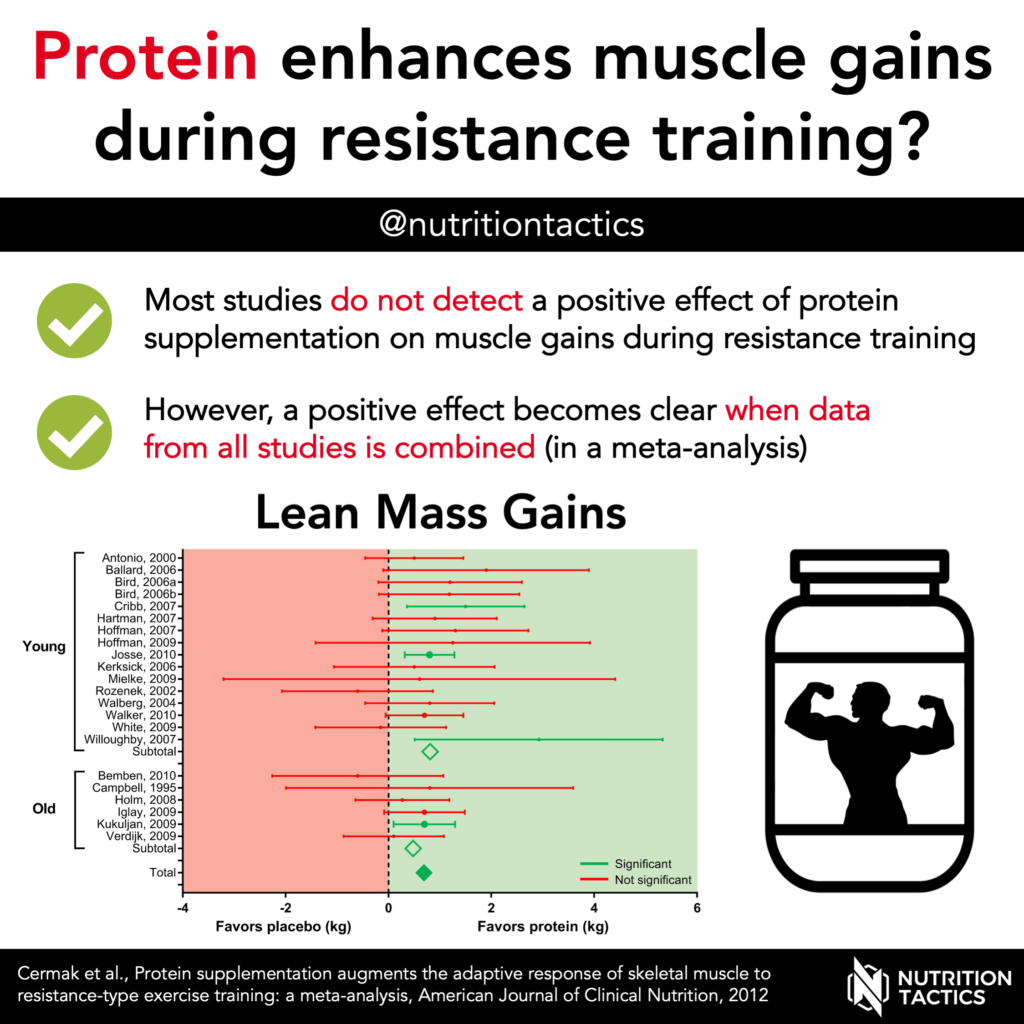Does protein supplementation enhance muscle mass gains during resistance training?
Protein provides the necessary building blocks (amino acids) for muscle growth. Protein directly stimulates muscle protein synthesis (building muscle proteins from amino acids).
Therefore, protein supplementation is widely applied with the goal to improve muscle mass gains from resistance. However, the majority of studies do not find a statistically significant effect on protein versus placebo. So is protein supplementation really an effective strategy?
This review combined the data from all the studies on the topic of protein supplementation and muscle mass gains during resistance training. This approach is called a meta-analysis and an advantage is that there is much more data which can improve the statistical conclusions.
When all studies were combined, it was clear that protein supplementation further improved muscle mass gains compared to a placebo. On average, young subjects gained an extra ~810 grams of lean mass in ~12 weeks. Older subjects gained an additional ~480 grams of lean mass.
The data in young subjects was a combination of untrained and trained subjects, supplementing with ~50 g/d on top of a habitual protein intake of ~1.2 g/kg/d, and on average ~3 training sessions a week. These and other factors will impact how much benefit you get from protein supplementation.
This meta-analysis is a good example of why you should not just “count” the outcome of studies to form a conclusion. Only 4 studies concluded that protein improved gains, while 18 studies concluded that it didn’t. Based on those numbers, your instinct may jump to the conclusion that protein is not effective. But a meta-analysis can be greater than its individual parts (to learn more about meta-analysis: see section 4.1 here).
Go to the next infographic in the protein series:
Elderly have lower protein and absorption?


Leave a Reply